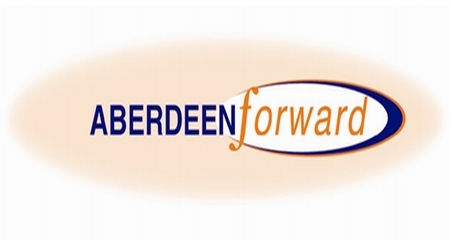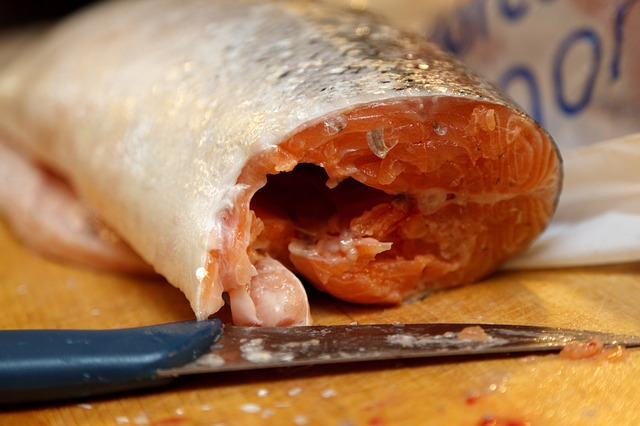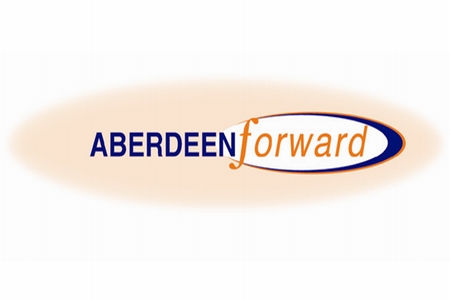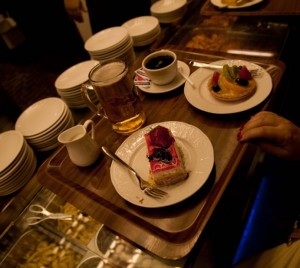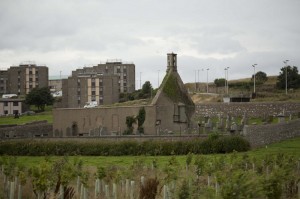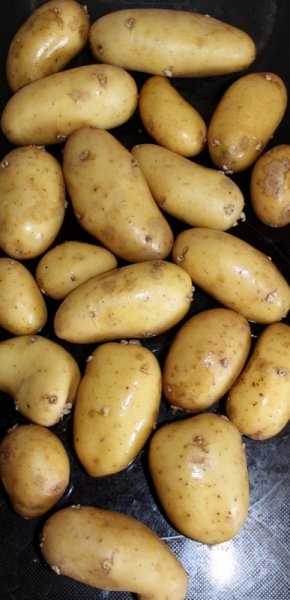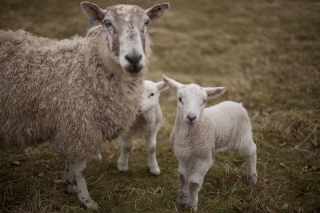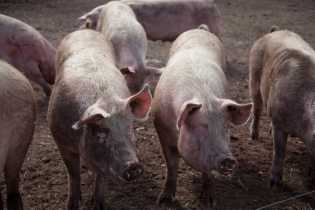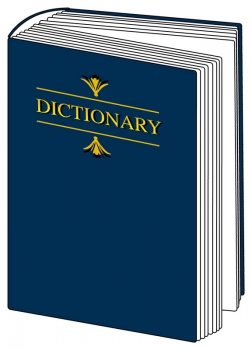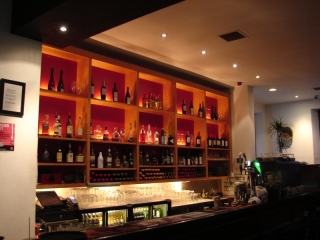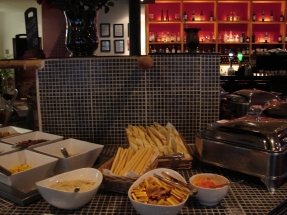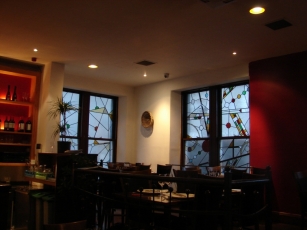Voice’s Old Susannah takes a look over the past week’s events in the ‘Deen and beyond. By Suzanne Kelly.
Another week passes in Aberdeen; Jamie Oliver’s new Italian restaurant had its first tasting sessions, and bookings extend way into the future. I feel kind of badly that no one told the poor guy we were ‘closed for business’, having rejected the Granite Web.
Then again, since 6,000 people will be in the promised jobs created by Donald Trump, this will mean we need more restaurants, too. Since the government said it, it must be true.
Our city council has put forward a plan to spend £56 million and improve our city centre and our roads.
To think – we could have spent only £84 million more, forgotten about fixing the few potholes we have, and built a granite web instead. Sophisticated culture-seekers would forget Venice, Paris and Rome to come walk up one side of the web and down the other.
I did say I’d be pleased to stop writing about the web, but its supporters, realising their vision is the only vision, are still using their influence to float this idea. They are going to flog this dead horse a while longer it seems.
Flogging dead horses is something which has been going on in Europe for some time as far as our meat is concerned anyway. Which leads to some definitions for the week
Labelling problem (modern European Union compound noun) – a minor, unimportant event where something has had the incorrect label put on it.
Thinking of dead horses, I wouldn’t worry too much about eating horse meat. Sure, you may have been paying through the nose for beef, or perhaps you’re buying budget ready meals for you and your family. Meat is meat of course. Except for the small fact you’ve probably been cheated and lied to so someone could make a profit at your expense.
Just because meat packing companies were lying about what the meat actually was, it doesn’t necessarily follow that they’d mislead us over anything else, does it? Some people might care about hygiene, animal welfare issues including transport, but I’m sure everything’s fine on that score. You can bet on it (and you could probably have bet on that hamburger you’re tucking into when it was alive).
Don’t worry about anything to do with your health and diet; the European Union are having a meeting or two on the horse meat issue. Result! I’ll bet you feel better already. First and foremost, they’ve decided they were in no way at fault in this situation. I’m sure we agree. I for one would hate to nag my MEP over this issue, or saddle him with any other worries.
EU agricultural regulations might just be a tad complicated, and might be enforced differently from one country to the next (or not enforced at all), but it’s nothing to do with our lawmakers, their abattoir inspectors, their agricultural policies, etc. According to news website EU business, the EU Commission spokesman Frederic Vincent reassuringly said at a news conference on the possibility of a British ban on EU meat exports:-
“We’re not talking about a food safety issue. Nobody got sick as far as I know. It’s just a labelling issue. So at this stage a ban on anything would not be appropriate.”
The Commission itself could only legally take action if there was proof of a health issue, he added.
http://www.eubusiness.com/britain-france-food
Old Susannah is so happy to learn no one got sick. Guess that’s the end of the food worry.
I’m sure it’s unimportant, but if you’re interested, some of the drugs we give horses to treat ailments such as inflammation include ‘Bute’ – a medicine which arguably is linked to cancer in humans. But no worries. ‘No one got sick.’
If a person did come in contact with cancerous materials, they’d instantly ‘get sick.’ Thankfully we have great scientific minds at work in the EU and not just politicians trying to worm their way out of tough situations via damage-limitation exercises in spin.
We’ve established that a person might not be instantly physically sick just from eating horse (which is a staple meat in many places – so much so it makes me wonder why the EU spokesperson had to say ‘no one got sick’). I’m sure this little misadventure in mis-labelling will be totally comical to the thousands of horse-lovers who’ll find out they’ve eaten horse meat when thinking they were eating something else.
The EU’s Muslim population will likewise be delighted to find that pork might have contaminated their food, too. Perhaps we’ll have a new brand of horse steak ‘I can’t believe it’s not burger!’
we can’t have countries just going around deciding what they’re going to do on their own, can we?
Sadly, there are those who don’t take the EU’s word at face value for some reason or other. Damian Carrington of the Guardian has written an article asserting that EU policy change was responsible in part for this situation. He’s found a few so-called experts (like some guy Dr Mark Woolfe, head of food authenticity at the FSA) to back this position up.
Since the Guardian is a left wing paper which actually criticises national and EU government initiatives, you can forget about Carrington’s piece (which is here in case you are interested – http://www.guardian.horsemeat-scandal ).
But why is the EU so keen to insist no one’s got sick? This is what they said about any import bans:-
“Owen Paterson, the British environment secretary… ruled out restrictions on imports of European meat into Britain, saying that such measures could be considered only if food safety issues were involved.
“’This appears to be an issue of fraud and mislabelling’” Mr. Paterson said.”
nytimes/anger-flares-in-europe-as-scandal-over-horse-meat-
Yes, no health issues, just labelling. Only the worst kind of cynic would think that the EU was more interested in politics, power, damage limitation (or heaven forbid money) than our health. Furthermore, we can’t have countries just going around deciding what they’re going to do on their own, can we? Where would we be then? If only there was something in place to give farmers a fair, just and reasonable financial aid…
Common Agricultural Policy (modern EU compound Proper noun) an European Union system by which farmers and agricultural land holders are given a subsidy.
Perhaps if we were only willing to contribute some small amount of money to farming in the EU, things like this wouldn’t happen. Here is a quote which may be of interest on that score:-
“The CAP cost British consumers £6.7bn in 1998 and taxpayers footed a further £3.4bn to fund the scheme. The total was equivalent to £3.30 per person per week in Britain, or £250 per year for every man, woman and child.” – Elliott Morley, Agriculture Minister, 1999
http://www.civitas.org.uk/eufacts/FSPOL/AG3.htm
Ah the old days of the 1990s, when there was hardly any money to go around.
I guess we’d better up the subsidies or we might wind up with more ‘labelling problems’ (which are of course not serious or anything to worry about). You might think this level of subsidies was quite a (horse) gravy train, but you’d be wrong. In fact, a website tells you a bit more about the value for money we get from CAP http://farmsubsidy.org/news/features/2012-data-harvest/ .
I must say, the figures we’re talking about start to make the granite web’s cost look as inconsequential as the web itself looked.
I’m sure every CAP penny is fully accounted for and only spent on practical necessities (although the Guardian would have you believe differently guardian-budget-battle-brussels ). Just because the EU has issues with creating a complete, transparent set of accounts which can be successfully audited, approved and published, doesn’t mean anything’s amiss.
Finally, lots of the blame seems to be falling on Romania, where this type of food labelling might or might not have started. The Romanians quite rightly threatened to veto the new EU budget; it seems they were unhappy with a few things including their CAP. I guess this threatened veto and its implication in the ‘labelling’ problem might answer the question posed by Monty Python: ‘What did the Romanians ever do for us?” (Just don’t mention the Price Wars).
Supermarket Price Wars (Modern English compound noun)
I’m sure it’s completely unrelated to the way EU policy is implemented in the UK, but supermarkets put a tiny bit of pressure on farmers to get the most produce for the least money. You would think CAP subsidies would make up for any low profit margins.
CAP subsidies are easy enough to get in the UK – there is hardly any paperwork (if you’re an accountant and EU law expert); there is no bureaucracy (e.g. most animals need 3 ear tags for openers or farmers are fined) , and our government always pays EU subsidies to farmers accurately and quickly (except for that time we got fined a few million by the EU for making farmers wait months for their subsidies).
Back to the supermarket issues. We all know that petrol prices, rail freight, taxes and so on have had tiny increases. This has made farmers costs go up like everyone else’s have. Are they getting more money from the big chains to cover their costs? Not so much. Our benevolent supermarket chains strive to keep customers happy.
Someone’s profit margins have to go down for the prices to stay low, and it’s certainly not going to be the supermarket’s
This is not because they want to gain as much of the market share for the grocery sector as possible; nor because they want to make it so small competitors don’t stand a chance. It’s because they genuinely like us all, and want to give us as much stuff as cheaply as possible. And that’s where the farmer happily plays his part.
The supermarket price wars are the never-ending battle between the giant chains to keep their prices as low as possible. Result! Farmers might get just a little bit squeezed. Someone’s profit margins have to go down for the prices to stay low, and it’s certainly not going to be the supermarket’s profits that get cut.
Has a farmer grown carrots which are not all identical in size and shape? He or she will have to get rid of the bad ones, and only get paid for the perfect looking ones. Farmers should be grateful big chains buy their produce at all.
Where does animal welfare fit into the supermarket price wars? Your customers who care about how animals in the food chain are treated when alive and/or who can afford to pay for better looked after animals will buy free range, organic chickens. Those on a budget will find there’s budget meat for you. Just don’t expect the animals have had a great life in the outdoors on the farm. And as we now know, don’t even expect the animal meat you buy is the meat you think you’re buying.
Maybe it’s time we started buying food from local producers directly. Maybe it’s time we stopped insisting our vegetables should all be perfectly formed. Maybe we should make animal welfare a priority, and stop shipping live animals around the country (and the world).
Or maybe we should just sit back, have a frozen shepherd’s pie or two, and wait for the EU to make it all better. Eventually.
Are you really so hungry you could eat a horse?
If perhaps you would rather ‘aid a horse’ ….. read on.
Some people have this crazy notion that horses are animals that work all of their lives, and deserve to be treated with more dignity than to be sold off as burgers when they age.
One such place is the Bransby Home of Rest for Horses, Mountains Animal Sanctuary (which had some of its Christmas donations stolen and its premises vandalised ) – and of course locally we have Willows, which is inundated with abandoned horses and ponies.
These and similar organisations get just a little bit less than are doled out in EU CAP subsidies. If you can spare some time or money, you could do worse than making a donation to an animal welfare charity of your choice.
Next week: a look at the exciting new plans for golf course No. 2 for the lucky Menie residents, a look at Aberdeen city’s plans, and for me, a look at my vegetarian cookbooks.
Comments enabled – see comments box below. Note, all comments will be moderated.
